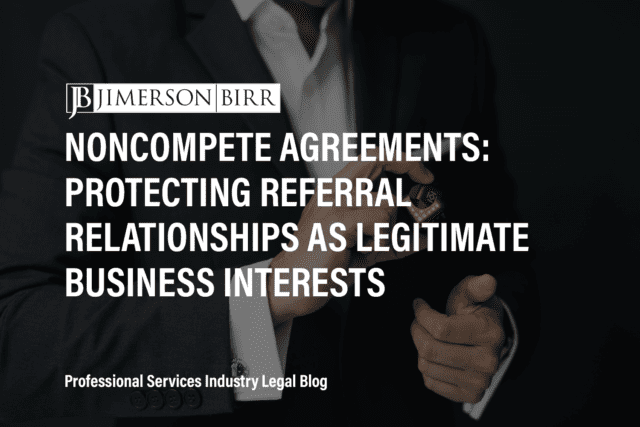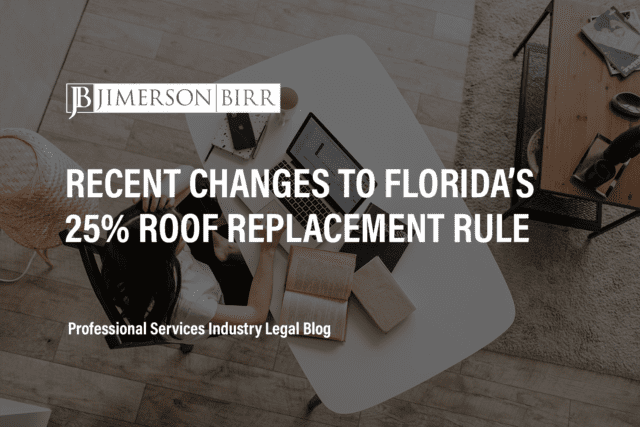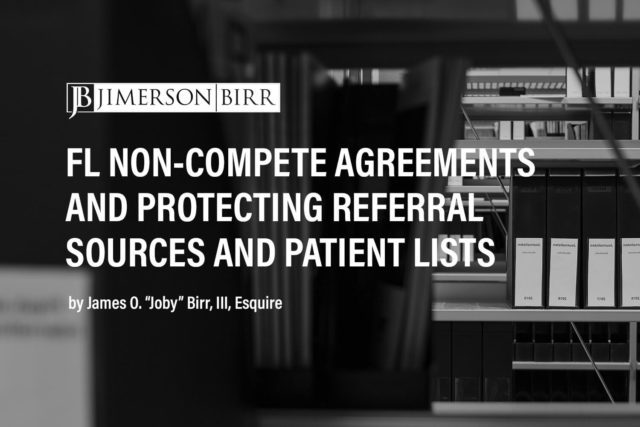What is trademark infringement?
Trademark infringement is the unauthorized use of a trademark or service mark, leading to consumer confusion regarding the source, sponsorship, or affiliation of goods or services.
For example, suppose a company in Florida creates a product with a logo strikingly similar to a well-established brand, causing customer confusion. Under Florida and federal laws, the well-established brand could pursue a trademark infringement claim against the company. In determining the case outcome, a court would analyze the similarity between the marks, the likelihood of confusion, and potential damages to the established brand.
Need an intellectual property advocate? Schedule your consultation today with a top intellectual property protection attorney.
In Florida, which laws and regulations apply to trademark infringement?
In Florida, trademark infringement claims involve both state and federal laws. On the state level, Florida Statutes, Chapter 495 outlines the registration, protection, and enforcement of trademarks and service marks. It grants the owners of registered marks the exclusive right to use the trademark and allows them to seek legal remedies for infringement.
At the federal level, the Lanham Act provides a comprehensive framework for trademark protection and enforcement. It addresses issues such as trademark registration, infringement, dilution, and false advertising. Trademark owners can pursue infringement claims under the Lanham Act in federal courts, which have nationwide jurisdiction and often provide more extensive remedies than state courts.
What are the strategic benefits of pursuing and defending against trademark infringement?
Effective navigation of intellectual property law enables the following for businesses:
- Protection of brand reputation: By pursuing and defending trademark infringement claims, businesses protect their brand’s reputation, ensuring consumer trust and goodwill remain intact. Failure to address infringement may result in the brand’s image becoming diluted or tarnished.
- Prevention of financial loss: Infringement can lead to lost sales and revenue, as consumers might mistakenly purchase counterfeit products or services. Swift legal action helps to minimize financial loss and ensures the infringing party does not profit at the expense of the trademark owner.
- Deterrence of future infringement: Successfully pursuing and defending trademark infringement claims discourages potential infringers from engaging in similar conduct. This deterrent effect helps maintain a strong brand presence and reduces the need for future litigation.
- Enforcement of legal rights: Pursuing trademark infringement claims asserts the trademark owner’s exclusive rights to use the mark. Enforcement of these rights strengthens the legal protection of the trademark, enabling the owner to safeguard their intellectual property better.
When a set of facts is appropriate for legal intervention, there are many paths a claimant may take. We are value-based attorneys at Jimerson Birr, which means we look at each action with our clients from the point of view of costs and benefits while reducing liability. Then, based on our client’s objectives, we chart a path to seek appropriate remedies.
To determine whether your unique situation may necessitate litigation or another form of specialized advocacy, please contact our office to set up your initial consultation.
What trademark rights issues commonly lead to trademark infringement litigation?
The following issues commonly lead to litigation:
- The similarity of trademarks: When two trademarks are confusingly similar, consumers may mistakenly associate the goods or services with the wrong company. This confusion can lead to trademark infringement litigation, as trademark owners seek to protect their brand identity and exclusive rights.
- Counterfeiting: The sale of counterfeit goods bearing an unauthorized trademark replica constitutes trademark infringement. Owners often pursue litigation to protect their brand reputation, prevent financial loss, and combat the sale of counterfeit products.
- Cybersquatting: Registering or using domain names that incorporate a trademark, intending to profit from the brand’s goodwill, is a form of trademark infringement known as cybersquatting. Trademark owners can pursue litigation to reclaim the domain and protect their online presence.
- Unauthorized licensing or franchising: When a party grants a license or franchise to use a trademark without the trademark owner’s permission, it constitutes trademark infringement. Owners can initiate litigation to protect their exclusive rights and prevent unauthorized use of their mark in these scenarios.
- Trademark dilution: Dilution occurs when the distinctiveness of a famous mark is weakened by unauthorized use, even if there is no likelihood of confusion. Trademark owners can pursue litigation to protect their mark’s distinctiveness and prevent damage to their brand.
Please contact our office to set up your initial consultation to see what forms of intellectual property protection may be available for your unique situation.
What are the elements of a trademark infringement claim?
In Florida, to establish a trademark infringement claim, a plaintiff must prove the following elements:
- The plaintiff owns a valid trademark;
- The defendant used the plaintiff’s trademark in commerce without the plaintiff’s permission;
- The defendant’s use of the trademark is likely to cause confusion, mistake, or deception; and
- The defendant’s use of the trademark caused the plaintiff to incur damages.
A valid trademark is one that is registered with the United States Patent and Trademark Office (USPTO) or that has acquired secondary meaning through use in commerce. To use a trademark in commerce, the defendant must use it in connection with the sale, distribution, or advertising of goods or services. Confusion, mistake, or deception can occur when consumers are likely to believe that the defendant’s goods or services are those of the plaintiff. Damages for trademark infringement can include lost profits, reasonable royalties, and costs.
What steps should counsel utilize to pursue and defend against trademark infringement?
Counsel should consider the following to protect their clients:
- Investigate the infringement: Gather evidence of the alleged infringement, including consumer confusion, sales of counterfeit goods, or unauthorized use of the trademark.
- Review relevant laws and precedents: Study Florida and federal trademark laws and relevant case law to understand the legal basis for the claim.
- Send a cease-and-desist letter: Notify the infringing party of the alleged infringement and request they stop using the trademark immediately.
- Negotiate a settlement: If the infringing party is amenable, negotiate a settlement to resolve the dispute without litigation.
- File a lawsuit: If negotiation fails, file a lawsuit in the appropriate court to seek relief, including injunctions, damages, and attorney’s fees.
To defend against trademark infringement claims, counsel should consider these strategies:
- Challenge the validity of the trademark: Argue that the trademark is not distinctive or has become generic and should be canceled.
- Assert a fair use defense: Claim that the use of the trademark is protected under the fair use doctrine, such as comparative advertising or parody.
- Argue no likelihood of confusion: Demonstrate that there is no likelihood of consumer confusion between the parties’ respective goods or services.
- Present the defense of laches: If the trademark owner unreasonably delayed asserting their rights, argue that they are barred from seeking relief due to laches.
Frequently Asked Questions
- Can I protect my trademark internationally?
Yes, but you must register your trademark separately in each country where you want protection. Alternatively, you can use the Madrid System, administered by the World Intellectual Property Organization, to apply for trademark registration in multiple countries through a single application.
- How long does a trademark registration last?
In the United States, trademark registration can last indefinitely, provided the owner continues using the trademark and files the necessary maintenance documents with the United States Patent and Trademark Office (USPTO). These documents include a Declaration of Use between the 5th and 6th years after registration and renewals every ten years.
- What is the difference between a trademark and a copyright?
Trademarks protect brand names, logos, and symbols that distinguish goods or services in the marketplace, while copyrights protect original works of authorship, such as books, music, and movies. Both forms of intellectual property provide different protections and rights to their respective owners.
Have more questions about how intellectual property protection could impact your business?
Crucially, this overview of pursuing and defending against trademark infringement does not begin to cover all the laws implicated by this issue or the factors that may compel the application of such laws. Every case is unique, and the laws can produce different outcomes depending on the individual circumstances.
Jimerson Birr attorneys guide our clients to help make informed decisions while ensuring their rights are respected and protected. Our lawyers are highly trained and experienced in the nuances of the law, so they can accurately interpret statutes and case law and holistically prepare individuals or companies for their legal endeavors. Through this intense personal investment and advocacy, our lawyers will help resolve the issue’s complicated legal problems efficiently and effectively.
Having a Jimerson Birr attorney on your side means securing a team of seasoned, multi-dimensional, cross-functional legal professionals. Whether it is a transaction, an operational issue, a regulatory challenge, or a contested legal predicament that may require court intervention, we remain tireless advocates at every step. Being a value-added law firm means putting the client at the forefront of everything we do. We use our experience to help our clients navigate even the most complex problems and come out the other side triumphant.
If you want to understand your case, the merits of your claim or defense, potential monetary awards, or the amount of exposure you face, you should speak with a qualified Jimerson Birr lawyer. Our experienced team of attorneys is here to help. Call Jimerson Birr at (904) 389-0050 or use the contact form to schedule a consultation.
Here are some blogs written by JB attorneys that provide more information about protecting intellectual property:
- The Lanham Act, its Extraterritorial Reach, and How It Can Be Used to Protect Trademarks from Being Exploited Outside of the United States (jimersonfirm.com)
- Florida Non-Compete Agreements and Protecting Referral Sources and Patient Lists (jimersonfirm.com)
- Non-compete Agreements: Protecting Referral Relationships as Legitimate Business Interests
- The Effect of Remote Work on Non-Compete Agreements

We live by our 7 Superior Service Commitments
- Conferring Client-Defined Value
- Efficient and Cost-Effective
- Accessibility
- Delivering an Experience While Delivering Results
- Meaningful and Enduring Partnership
- Exceptional Communication Based Upon Listening
- Accountability to Goals











